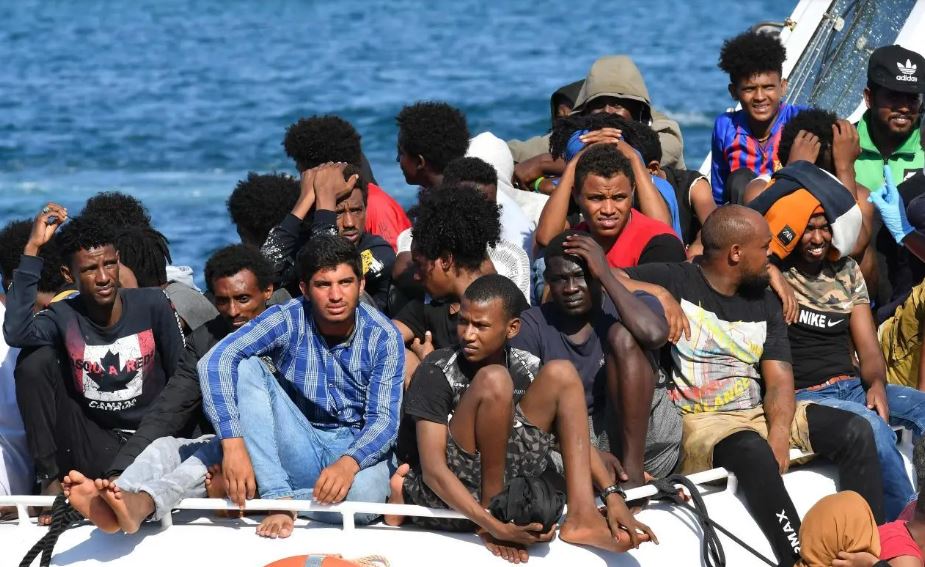2,000 Sudanese, Somalis, and Yemenis are expected to land in the next two weeks, but Egyptians and Bengalis remain at the top of the list of the most numerous ethnic groups arriving.
Grain shortages and the economic crisis caused by the war in Ukraine are plaguing the main countries of origin and transit, which export irregular migrants to Europe via Italy. In addition to the migratory phenomenon from Turkey, which is having a major impact on Puglia and Calabria, the situation on the southern shores of the Mediterranean Sea has begun to spiral out of control. In Egypt, Tunisia, Libya, and, to some extent, Algeria, famine, the shortage of raw materials due to the blockade of Russian and Ukrainian ships, the closure of Shanghai due to a new pandemic wave, and inflation due to the rise in interest rates by US and European banks are fuelling the migratory phenomenon. In addition, there is the invasion of hundreds of thousands of sub-Saharan Africans who are willing to pay protection money to human traffickers just to be brought on board NGO ships.
It is estimated that more than 200 000 sub-Saharan nationals are ready to leave the Libyan coast and 30 000 from Tunisia and Algeria – mainly Sudanese, Somalis, Nigerians, and even Yemenis. Of the 16,000 people landing in Italy this year (3,500 more than in 2021 and four times more than in 2020), Egyptians remain at the top of the list with 23%, followed by Bengalis with 20%, Tunisians with 15%, and then everyone else after them. Far from heading to the Black Sea to pick up genuine Ukrainian refugees from Odessa or the shores of the Sea of Azov, the Norwegian, German, Italian, and Spanish NGO ships, cleverly insist on being located mainly in Sicilian ports and effectively patrolling a few miles off the Libyan and Tunisian coasts, notably off Zuara and Al Zawiyah, in Libya’s SAR area. The most powerful trafficker operating on this coast is Libyan Mohamed Salem Bahroun, a member of the Ibrahim Hnich clan, a disciple of the terrorist Abou Oubayda El Zaoui, and the leader of an armed support group between Tripoli and Al Zawiyah. He has a monopoly on the departure of illegal immigrants and the sale of cocaine from Italy and anything that can be smuggled, including weapons.
The Norwegian NGO ship Ocean Viking has just replaced its sister ship, the Geo Barents, which took on board 470 ‘false castaways’ and is now awaiting permission from our Home Secretary, Mr. Lamorgese, to unload its goods in Augusta, even though Article 13 of the Dublin Regulation requires it to take them home because this ship is Norwegian territory and the ‘first illegal crossing’ of illegal immigrants is taking place onboard it. The German patrol boat Sea-Watch 4 will be anchored in Augusta, having just received, together with another Teutonic and better known Italian patrol boat Sea-Watch 3, the handover from another German patrol boat Sea-Eye 4 off Trapani. The German NGOs are funded with millions of euros, mainly by the German Evangelical Church – and therefore indirectly by the German government – and are led by experienced communist fanatics from the far-left Die Linke party, the former Marxist party of Soviet Germany.
The second German NGO ship, Resq People, stationed in Syracuse, has “blossomed” out of a project started by the former Attorney General Colombo, and seems ready to set sail in mid-June, despite the lack of supporters, except, as said, the Catholic-Communist and radically chic intelligentsia from the world of entertainment and the retired judiciary. The Italian ship Mare ionio, which the NGO Mediterranean Human Savings accuses of transhipping migrants in exchange for money, is on ‘light cables’ in Mazzara del Vallo if its expiring seaworthiness certificates are renewed. Another German-flagged ship, the Louise Michel, financed by the fictitious millionaire street artist Bansky, another by-product of the aesthetic populism of the dominant artistic mainstream, has stopped in Sagunto, Spain, a country chosen as a seasonal stopover by NGOs, but with the promise not to bring illegal immigrants to these ports under threat of a heavy fine of 900,000.00 euros.
By Nicola de Felice


